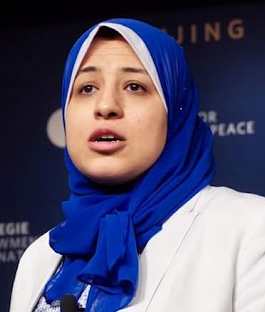Bio
Rawia Tawfik is an associate professor at the Faculty of Economics and Political Science at Cairo University. She holds a Doctor of Philosophy degree in politics from the University of Oxford. She was a visiting research fellow at the South African Institute of International Affairs (SAIIA) and the Africa Institute of South Africa (AISA), and a researcher at the German Development Institute/Deutsches Institut für Entwicklungspolitik (DIE) in Bonn. Her research interests include, African development, regional integration, and resource-based conflicts, especially conflicts over transboundary rivers in Africa, and the Nile basin in particular. Her work on these issues have appeared in leading international peer-reviewed journals, including African Studies, Water Alternatives, Water International, Water Policy, and The International Spectator: Italian Journal of International Affairs. Rawia has also contributed chapters on regional security complexes, Nile hydropolitics, and foreign policy of African regional powers, to several edited books, including, Foreign Policy in Post-Apartheid South Africa: Security, Diplomacy and Trade, edited by Adekeye Adebajo and Kudrat Virk (London and New York: IB Tauris, 2017); and, the Routledge Handbook on Middle East Security, edited by Anders Jagerskog, Michael Schulz and Ashok Swain (London and New York: Routledge, 2019). She was a recipient of the APN Individual Research Grant in 2017, and the African Studies Association (ASA) Presidential Fellowship in 2018. She is an associate editor of the Review of Economics and Political Science, a peer-reviewed open access journal by Emerald Publishing Services on behalf of Cairo University. Rawia is also a member of the African Peacebuilding Network and Next Generation Social Science in Africa Advisory Board.

